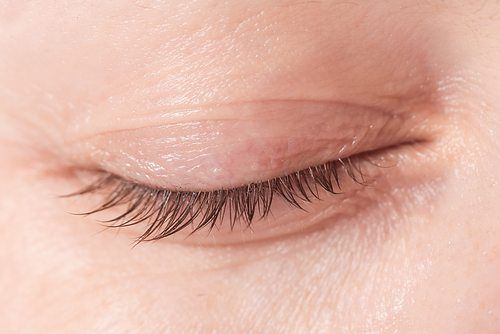Eyelid twitching is a major hassle, but it’s typically harmless. Known as myokymia to the professionals, usually, twitches only affect your lower eyelid, though upper eyelid twitching has been known to occur. While most twitching often resolves itself, some periods of twitching can last for weeks on end. If you’re dealing with a prolonged period of twitching, you should contact an eye doctor for an examination. However, here are some common causes of regular eye twitching that you might not know about.
Stress
You missed a deadline. Your boss asked for more edits. You feel like you’re behind on your work, and to top it all off, you feel an annoying twitching sensation on your eyelids. Stress triggers so many unwanted responses in the body, including eyelid twitching. You’ve likely experienced it before when you’ve had a particularly rough day. To make matters worse, stress frequently causes sleep loss, which is prone to causing eyelid twitching.
To combat the stressors in your life, consider yoga, meditation, and breathing exercises. These are all excellent ways to clear your mind and reduce stress. Plenty of free resources can help you learn to put these techniques into practice. Try to incorporate them into your daily routine to see whether they’re able to help stop your eyelid twitch.
If yoga and meditation aren’t your speed, find more ways to work downtime into your schedule. Use these slower periods of life to recalibrate yourself and promote more relaxation. Spend time with family, friends, and pets as a means of de-stressing. If you actively work to combat stress, chances are you’ll experience much less eye twitching.
Caffeine
It’s important for those of you that can’t function without your morning cup of joe to understand the health consequences that caffeine might cause. Not only is over-reliance on caffeine bad for your body, but it’s also a known culprit of eyelid twitching. Caffeine frequently causes jittery feelings and can also lead to bouts of insomnia.
If you think caffeine may be the root of your eyelid twitching, try cutting back or replacing your normal intake with decaffeinated options. This means decaffeinated soft drinks, teas, and coffees. Another unlikely source of caffeine? Chocolate. Work to curb your sweet tooth and decrease your overall caffeine intake for a week or two to help you gauge whether or not it’s the cause of your eyelid twitching.
If you’re really hankering for an energy source, you can find many healthier alternatives to give your body an added boost. If you find yourself feeling groggy and fatigued throughout the day, keep an eye on your water intake. Dehydration causes sluggishness and tiredness. The most common recommendation for daily water intake is about a half-gallon if dehydration isn’t behind your fatigue. There are plenty of drink options that use B vitamins instead of caffeine to fuel your body. As with any energy-boosting product, moderation is key.
Dry Eyes
After age 50, dry eyes become more common in adults. However, age isn’t the only factor. Heavy computer use, certain medications, consumption of coffee and alcohol, and contact lenses are all causes of dry eyes. Without the protective moisture on the surface of your eye, you’re at a much higher risk of experiencing eyelid twitching.
Preventing dry eyes is simpler than it seems. Eye drops are one of the most readily available remedies, and extra strength over-the-counter options are available if you’re prone to dryness. Consider your environment as the cause of your dry eyes as well. Use a humidifier in the winter to add more moisture to the air in your home. Avoid spending too much time outside on especially windy days. If you’re engaging in activities such as motorcycling, wear appropriate eyewear to prevent dry spells.
If you’re regularly experiencing dry eyes, you should get in touch with your eye doctor. The doctor will perform a dry eye examination to determine the cause of the dryness and develop a course of action to correct the issue. Often, this will be enough to counteract any twitching, though, on occasion, further examinations and follow-ups will be required.
Check It Out
Most of the time, making some minor changes in your diet and lifestyle will be enough to prevent further eyelid twitching. However, if you’ve noticed that the twitching is recurring or has become chronic, it’s important to follow up with an eye doctor to determine what’s causing it. As stated, while more serious issues are far less common, eyelid twitching can be symptomatic of a neurological disorder and shouldn’t be left untreated.
If you’re experiencing frequent eyelid twitching or if it’s time for you to get an eye exam, contact the eye experts at eyecare center Jackson Davenport to set up an appointment today.

